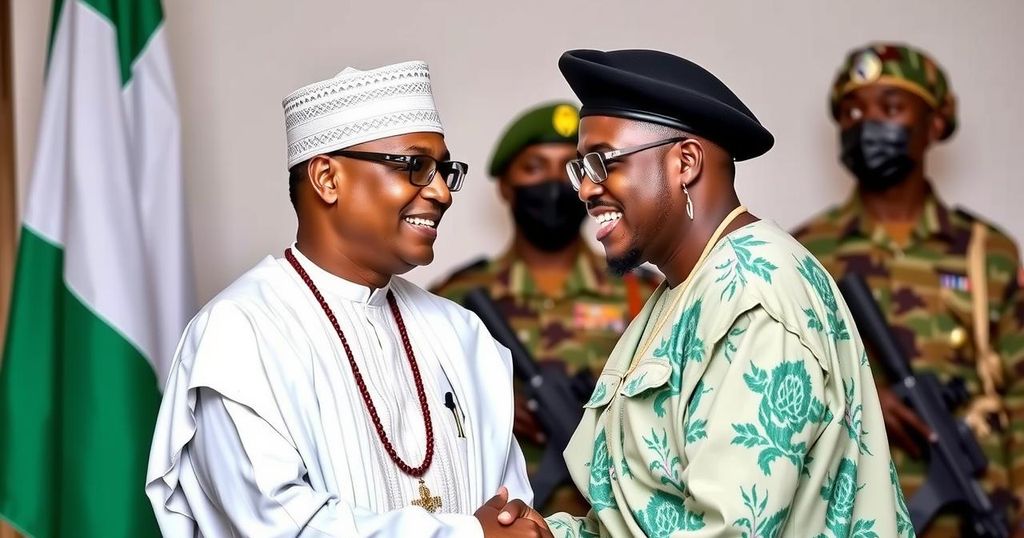Nigeria’s Diplomatic Strategy: The Need for Collaborative Efforts in Security and Economy
Professor Eghosa Osaghae discusses the importance of Nigeria’s foreign diplomatic efforts led by President Tinubu and Vice President Shettima in attracting foreign investments critical for national economic growth. He highlights the urgent need for external support to combat insecurity, underscoring the interconnectedness of regional safety and Nigeria’s strategic relationships with neighboring countries amidst challenges like terrorism and international political dynamics, including a possible BRICS membership.
The Director-General of the Nigerian Institute of International Affairs, Professor Eghosa Osaghae, elucidates on the diplomatic initiatives undertaken by President Bola Tinubu and Vice President Kashim Shettima, particularly emphasizing the significance of foreign travels amidst domestic economic challenges. He argues that these trips are pivotal in attracting foreign direct investments that ultimately benefit the nation, thereby overshadowing the costs incurred. Osaghae posits that Nigeria’s diplomatic engagements are necessary for enhancing security, as issues of insecurity extend beyond national borders, necessitating a cooperative international approach.
In addressing security threats, he stresses the need for Nigeria to seek external support for capacity-building and technology acquisition to combat terrorism and banditry, which have become widespread global issues. The need for collaboration is prominent, as demonstrated by Nigeria’s military prowess and international recognition in peacekeeping efforts. Furthermore, Osaghae acknowledges the challenges faced by Nigeria in maintaining stable diplomatic relations with neighboring countries like Niger, particularly after their recent withdrawal from ECOWAS, yet he asserts the intrinsic ties that bind these nations together in addressing security challenges.
Finally, Osaghae reflects on Nigeria’s potential membership in BRICS, interpreting it not as a move against Western relations but rather as an opportunity for diversifying Nigeria’s international collaborations. He concludes by expressing optimism for continued diplomatic dialogue between Nigeria and its neighbors despite existing challenges, highlighting the interconnected nature of security in the region.
The dialogue concerns Nigeria’s foreign policy, focusing on the diplomatic travels of President Bola Tinubu and Vice President Kashim Shettima. These travels are scrutinized in terms of their necessity and economic implications in light of Nigeria’s pressing domestic challenges. Prof. Eghosa Osaghae, the Director-General of the Nigerian Institute of International Affairs, articulates the importance of fostering foreign investments amid security crises, indicating the need for international collaboration to tackle transnational threats like terrorism and banditry, especially relating to Nigeria’s interaction with Sahelian states and the implications of potential BRICS membership.
In conclusion, Professor Eghosa Osaghae emphasizes the necessity of international diplomacy and collaboration for Nigeria, particularly in combating insecurity and fostering economic growth. He advocates for the strategic importance of foreign travels by leadership as a means to attract investment while reaffirming that security challenges require unified efforts across borders. Osaghae’s insights suggest that Nigeria’s position in the international community, coupled with its historical ties with neighboring countries, remains vital in addressing regional instability.
Original Source: punchng.com




Post Comment